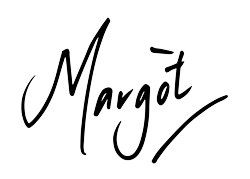“Knowledge is not power … it is only potential power. It becomes power only when, and if, it is organised into definite plans of action and directed to a definite end.” (Napoleon Hill)
When we have momentum, we feel as though anything is possible and we can confidently take on new challenges. Other times, momentum can seem elusive and a struggle to develop.
It’s often hard to describe and yet it is nearly always our secret magic weapon to achieving success. At its best, momentum helps us remain focused, clear minded and forward thinking rather than stagnating.
One of the key roadblocks to momentum, for leaders in particular, often manifests in being caught up with the tactical execution of work, rather than focusing on the strategic and organisational management work that is needed to drive growth and leverage opportunities as and when they arise.
Businesses and their leaders know what they need to do but find themselves unable to do it because they don’t have people in the right place, or people with the right capabilities, which results in stalled momentum time and again.
The key to breaking out of this cycle is turning this knowledge – of what needs to be done – into action, which is often easier said than done.
The reality is knowledge is only useful if we do something with it. Whilst it is very important to develop a strategy, build intellectual capital and remain up to date and aware of new developments, we need to actually do something.
Whether it’s about implementing a new way of working, recruiting new skills for our team, getting fitter, saving more money or simply slowing down, too many businesses and individuals are finding themselves caught in the gap between knowing what they should do and doing what is actually required.
So how can we build a culture of action within our businesses?
Commit to taking action: Many of us have fallen into the pattern of researching, planning and refining our strategy as a way of telling ourselves we are busy ‘doing’ when really we are just playing safe. Essentially all we are doing is walking on a treadmill – yes we are moving but it is not actually taking us anywhere.
Lose the perfectionist tag: Perfectionism is the equivalent of paralysis. Not only does it prohibit us from taking the first step towards action, it also creates unwarranted stress, crushes creativity, prevents productivity and ultimately limits profitability.
Simplify: Leaders and organisations that use simple straightforward language, concepts and structures are better at closing the knowing-doing gap. Simplicity removes ambiguity, blame and confusion. It increases productivity, efficiency and creativity. Quite simply it is the fast track to creating action.
Invest in learning: Closing the gap on knowing and doing requires an investment in training and learning be-it for our organisations or ourselves. Developing expert skill-sets, efficiency and confidence requires commercial tolerance, time and a learning based culture or outlook. Recognising that as learners we need space to explore new ideas, make mistakes and embed new knowledge is critical to maximising the ROI on the learning investment.
Face the fear: Fear is one of the greatest enemies of success and progress. To close the knowing-doing gap we need to face it – both at an individual and organisational level. To take action we need to know that there will be no punishment for taking risks, making mistakes and exploring new ideas without a guarantee of success. If we fear for our jobs, our future opportunities or even for our own self-worth we are less likely to move beyond the safe confines of what we know and have done before which ultimately prohibits any form of growth.
Measure the right things: To encourage action we need to ensure that we are measuring the right things. Pouring all of our energies and metrics into scrutinising hours worked rather than levels of customer satisfaction is not going to drive future results. We need to demonstrate and see the value in what we are measuring and how it relates to what we do our future direction and our success.
Do you feel your business is effectively turning knowledge into action? What opportunities would you be able to tap into, if less time was spent in execution?
As always, I would love to hear your thoughts.


